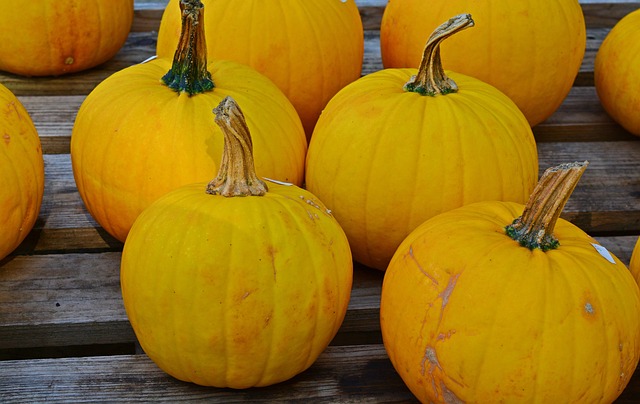Composting at home is an eco-friendly solution for yard waste removal and recycling, transforming organic scraps into nutrient-rich compost that benefits soil health and plant growth. By combining kitchen scraps with yard trimmings, maintaining a balanced material ratio, aerating the pile, and keeping moisture consistent, you create a dark, crumbly, earthy-smelling compost ideal as a natural fertilizer. This process reduces waste sent to landfills, minimizes greenhouse gas emissions, fosters sustainable gardening practices, and strengthens plant health while cutting down on chemical dependencies.
Compost creation is a rewarding practice for garden enthusiasts aiming to enhance their green spaces naturally. This article explores the art of transforming yard waste into valuable compost, offering an eco-friendly solution to traditional yard waste removal. By understanding the basics of compost creation, you can effectively recycle organic materials from your garden and home, ultimately reducing environmental impact while boosting your garden’s health and fertility.
- Understanding Compost Creation: The Basics of Yard Waste Recycling
- Effective Strategies for Collecting and Creating High-Quality Compost at Home
- Benefits of Composting: Enhancing Your Garden's Health and Reducing Environmental Impact
Understanding Compost Creation: The Basics of Yard Waste Recycling

Compost creation is a simple yet powerful process that allows garden enthusiasts to recycle their yard waste, transforming it into nutrient-rich compost that benefits soil health and plant growth. Understanding the basics of yard waste removal and recycling is the first step towards fostering a sustainable gardening practice. By composting, you not only reduce the amount of waste sent to landfills but also create a valuable resource for your garden.
This process involves collecting organic materials like leaves, grass clippings, vegetable scraps, and coffee grounds, and allowing them to decompose naturally over time. These materials break down into nutrient-dense compost, which can then be mixed with soil to enhance its fertility. Proper management of yard waste through composting is an eco-friendly practice that contributes to a healthier environment by minimizing the strain on landfills and reducing greenhouse gas emissions associated with waste disposal.
Effective Strategies for Collecting and Creating High-Quality Compost at Home

Effective Strategies for Collecting and Creating High-Quality Compost at Home
One of the best ways to reduce yard waste removal and recycling costs while promoting sustainable gardening practices is by composting at home. Start by collecting organic materials such as vegetable scraps, fruit peels, coffee grounds, and eggshells from your kitchen. These items not only enrich your compost pile but also divert significant amounts of waste from landfills. Incorporate these kitchen scraps into a balanced mix with yard trimmings like grass clippings, dried leaves, and small branches. Aim for a ratio of about 30:70 between brown (dry, carbon-rich materials) and green (moist, nitrogen-rich materials) components to ensure optimal decomposition.
Regularly turn the compost pile to aerate it, ensuring consistent moisture levels, and maintain a temperature between 120°F – 150°F (49°C – 66°C). This process accelerates the breakdown of organic matter into nutrient-rich compost. Once your compost reaches a dark, crumbly texture and an earthy smell, it’s ready to use as a natural fertilizer for your garden beds, ensuring healthier plants and reducing the need for chemical amendments while effectively managing yard waste removal and recycling at home.
Benefits of Composting: Enhancing Your Garden's Health and Reducing Environmental Impact

Composting offers numerous advantages for garden enthusiasts, providing a sustainable solution that benefits both your garden’s health and the environment. By recycling yard waste and organic materials, such as food scraps and plant debris, you create nutrient-rich compost that acts as a natural fertilizer. This practice reduces the amount of waste sent to landfills, minimizing the environmental impact of yard waste removal and recycling.
Incorporating compost into your garden improves soil structure, increases moisture retention, and promotes healthy microbial activity. As a result, plants grow stronger and more resilient, with improved immune systems that better defend against pests and diseases. Moreover, composting reduces the need for synthetic fertilizers and pesticides, creating a more sustainable and eco-friendly gardening routine.
Compost creation is a powerful tool for garden enthusiasts aiming to enhance their green spaces while reducing environmental impact. By understanding the basics of yard waste recycling and implementing effective strategies, homeowners can transform organic materials into nutrient-rich compost, benefiting their gardens and contributing to a more sustainable future. Adopting composting practices not only reduces the need for chemical fertilizers but also promotes a healthier ecosystem. So, why wait? Dive into the world of compost creation and experience the positive changes it brings to your garden and the environment.
